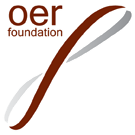
The process of writing
Process, style, and method to produce clear and effective academic writing.
What’s it about?
Writing involves much more than just putting words on a page. A significant part of your writing begins long before you put pen to paper or fingers to keyboard. That’s because it is a process.
Some prefer doing all their writing in one sitting. To that end they’ve had to develop a plan ahead of time and have a clear idea of what they want as a result. Others have a general idea of what they want to write but prefer letting the text evolve along the way.
The most effective writing method depends on many factors such as the audience it is aimed at, the purpose of the text, the context, and the media. Defining these aspects ahead of time will help you apply the most appropriate voice, tone, and persona to your writing, which in turn will make your text more effective.
The PWR method involves pre-writing, writing, and revising. Imagine you organise a family feast. You’ll spend some time designing a menu and choosing your ingredients. Then you’ll spend the largest chunk of your time cooking everything. Finally, you’ll spend some time making your dishes look their best. The same is true of your writing.
In this micro course, you will engage with all of these topics and learn how to lay the groundwork for successful communication through writing.
What will I learn?
In this course, you will learn to:
- distinguish between different theories of writing.
- identify the various elements that inform your writing (e.g. audience, purpose, context, media).
- recognise and use the three steps in the PWR (pre-writing, writing, and revision) method.
- understand how a sentence is constructed.
- apply the most appropriate voice, tone, and persona in your writing.
What’s involved?
Participants will join an international community of learners interested in gaining a better understanding of the complex process involved in communicating through writing. Largely self-directed and self-paced, the course will, if learners wish, lead to credits from an affiliated institution.
The course will be offered as a micro open online course comprising a number of learning activities and resources. It is to be viewed as part of the larger English for academic writing course of study, coupled with ENGA102, ENGA103, and ENGA104.
Prerequisites?
Anyone is free to participate in this course. An internet connection and basic web browsing skills are recommended with the ability to self motivate and direct.
Learners preparing for formal academic credit will need to meet the normal admission requirements of the conferring institution.
Image credit: Hand writing by Pexels dedicated to the public domain.
 Christine Daviault, is a writer, editor, and designer (graphic and instructional) who works on the intersection of creativity and management. Christine was commissioned by the
Read More
Christine Daviault, is a writer, editor, and designer (graphic and instructional) who works on the intersection of creativity and management. Christine was commissioned by the
Read More
 Cameron Campbell, is a learning designer with extensive experience in graphic design, journalism, and instructional design. Cameron was commissioned by the OER Foundation to work
Read More
Cameron Campbell, is a learning designer with extensive experience in graphic design, journalism, and instructional design. Cameron was commissioned by the OER Foundation to work
Read More
The course materials for ENGA101 were proudly remixed for the OERu from the English Composition 1 course published by the Saylor Academy under a Creative Commons Attribution 3.0 Unported license.





